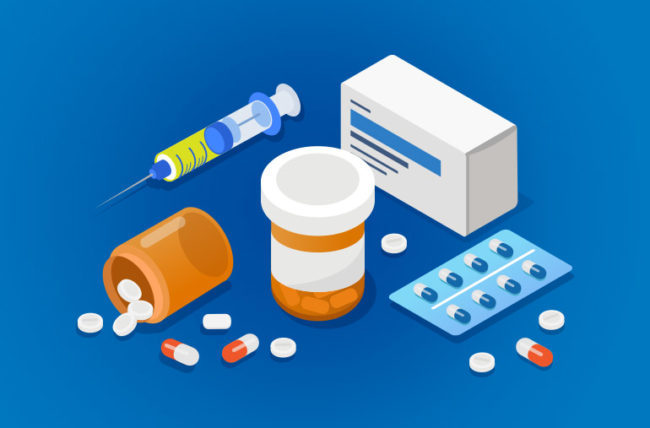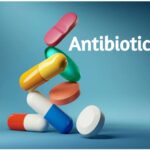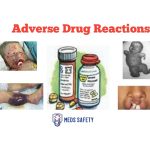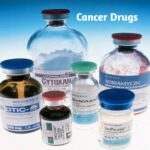What Is A Drug Injury: Types and List of Medications

What Is a Drug Injury?
A drug injury is defined as any injury, harm or death that occurs as a result of taking prescription medication or over-the-counter drugs. The injury sustained can be a condition brought on by a serious reaction, side effect, or even death. Before any medication ever reaches the market for sale, it must be approved by the Food and Drug Administration (FDA).
However, sometimes defective medicines find their way through the system, reach the masses, and harm hundreds of people. Other times, the issue lies in the hands of improper or unclear warning labels or instructions that later cause harm. It’s also possible that the incident causing injury occurred at the pharmacy: medications were improperly handled, bottles were mislabeled, and so on. To be eligible for a drug injury case, the injury sustained must have been a preventable injury had someone such as a drug manufacturer, physician, or pharmacist made a better move.
List Of Medications And Chemicals That Can Cause Liver Injury
Toxic liver disease is damage to your liver. It’s also called hepatotoxicity or toxic hepatitis. It can cause serious symptoms or liver damage if you don’t get help. Medications, herbal supplements, chemicals, solvents, and alcohol are all possible causes of hepatotoxicity.
Drugs That Can Damage the Liver
| Type of Drug | Examples |
| Antibiotics | Amoxicillin/clavulanate Clindamycin Erythromycin Nitrofurantoin Rifampin Sulfonamides Tetracyclines Trimethoprim/sulfamethoxazole Drugs used to treat tuberculosis (isoniazid and pyrazinamide) |
| Anticonvulsants | Carbamazepine Phenobarbital Phenytoin Valproate |
| Antidepressants | Bupropion Fluoxetine Mirtazapine Paroxetine Sertraline Trazodone Tricyclic antidepressants such as amitriptyline |
| Antifungal drugs | Ketoconazole Terbinafine |
| Antihypertensive drugs (used to treat high blood pressure or sometimes kidney or heart disorders) | Captopril Enalapril Irbesartan Lisinopril Losartan Verapamil |
| Antipsychotic drugs | Phenothiazines such as chlorpromazine Risperidone |
| Heart drugs | Amiodarone Clopidogrel |
| Hormones and related drugs | Anabolic steroids Birth control pills (oral contraceptives) Estrogens |
| Pain relievers | Acetaminophen NSAIDs |
| Other drugs | Acarbose (used to treat diabetes) Allopurinol (used to treat gout) ART drugs (used to treat HIV infection) Baclofen (a muscle relaxant) Cyproheptadine (an antihistamine) Azathioprine (used to prevent rejection of an organ transplant) Methotrexate (used to treat cancer) Omeprazole (used to treat gastroesophageal reflux) PD-1/PD-L1 inhibitors (anticancer drugs) Statins (used to treat high cholesterol levels) Many types of chemotherapy, including immune checkpoint inhibitors |
| Medicinal herbs | Germander Green tea extract Kava Energy drinks |
| ART = antiretroviral therapy; HIV = human immunodeficiency virus; NSAID = nonsteroidal anti-inflammatory drug. |
Medicines That Can Cause Acute Kidney Injury
Many medicines can cause acute kidney injury (which used to be called acute renal failure), such as:
Antibiotics. These include aminoglycosides, cephalosporins, amphotericin B, bacitracin, and vancomycin.
Some blood pressure medicines. One example is ACE inhibitors, such as lisinopril and ramipril. Another is angiotensin receptor blockers. These include candesartan and valsartan.
Medicines used for cancer treatment (chemotherapy). Examples are cisplatin, carboplatin, and methotrexate.
Dyes (contrast media). These are used in medical imaging tests.
Illegal drugs. Examples are heroin and methamphetamine.
Medicines used to treat HIV. They are called protease inhibitors. Examples are indinavir and ritonavir.
Non-steroidal anti-inflammatory drugs. These include ibuprofen, ketoprofen, and naproxen.
Ulcer medicines. One example is cimetidine.
Be safe with medicines, always read and follow all instructions on the label. Make sure every doctor you see knows about all of the medicines, vitamins, or natural health products you take. This means anything you take with or without a prescription.





